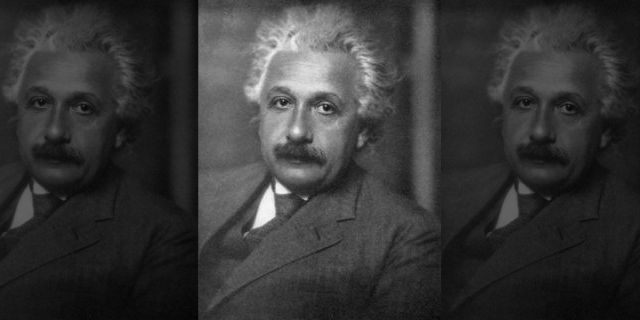[ad_1]
Experts reveal the formula to raising highly successful children
In the midst of the biggest college admissions cheating scandal in U.S. history, a new book called ‘The Formula,’ breaks down 8 parenting roles that make up a formula to raising smart, highly successful children. Fox News’ Laura Ingle sits down with the authors to discuss the secret formula they discovered.
With the news of the largest college admissions cheating scandal all over today’s headlines, one might wonder how students, who really earned their way into these schools, became such smart, high-achievers. Some experts might say it’s in their genes while others question whether luck is really the biggest driver. But a new book called “The Formula” unveils how parenting may be the key factor in determining whether individuals will ever reach their full potential.
Co-authors Ronald Ferguson, the director of Harvard’s Achievement Gap Initiative and award-winning journalist Tatsha Robertson interviewed hundreds of successful adults and their parents to come up with eight major roles that “master parents” must fulfill in order to raise smart, high-achieving children, no matter what background they come from. In fact, the book describes how “regardless of material resources, these parents exhibited intense commitment and vision” when it came to raising their children, a skill that is not by chance, but is purposeful.
Here’s a look at some of those roles:
The Early Learning Partner
According to Ferguson and Robertson, the early-learning partner spends a lot of time with the child in brain-building play and literacy activities starting from birth to age 5. Early play can include playing with blocks, reading flash cards or learning an instrument, but it’s an activity that “stimulates the brain in a way that inspires discipline, imagination and critical thinking.”
The book points to an example of a 2016 study out of the University of Indiana that illustrated how playing with blocks can reorganize the brain during play.
“It changed the way the children were solving the mental rotation problem; we saw increased activation in regions that have been linked to spatial processing…”
Ferguson and Robertson included dozens of stories from parents who come from different educational backgrounds.
“There was one young man who grew up in a homeless shelter. His mother would teach him how to read on a couch of a homeless shelter showing little flash cards. He ended up going to Harvard,” Robertson said. “But she started so early and he was learning so much so that by the time he was in kindergarten he was already ahead.”
Ferguson said that these “master parents,” the ones who were following this so-called formula they discovered, were students of their children.
“You get to know your child so well that you know what the right time and place is for a particular kind of activity with a particular child,” he said.
The Flight Engineer
Once the child has entered school, this role monitors and manages all the people and systems working on behalf of the child.
“If you think of life as a journey, high achievers are on a high flight trajectory and the flight engineer makes sure that if anything starts to go off track they intervene,” Ferguson said.

Ferguson described a story in which one parent intervened when a teacher started leaving frowny faces on their child’s papers. The flight engineer parent looks at this as something that is threatening their child’s confidence.
“The parent just went in and said ‘there will be no more frowny faces on my child’s paper. Even if the work’s not good it should be a smiley face if there’s going to be a face there,’” Ferguson explained.
The Fixer
Similar to the flight engineer, the fixer is also a problem solver. But this type of problem does not necessarily involve a third party that the parent has to work with to solve the problem. Instead, the parent has to come up with a solution on their own. The fixer is resourceful in fixing the type of problems that threaten opportunities for their child, often making sacrifices, whether they be “relinquishing prized possessions, making significant life changes, or devoting large amounts of personal time to continue their child’s momentum.”
Robinson relayed another story that involved a struggling family who made extreme sacrifices for their child. He said the mother knew her daughter was a member of this high-achieving group of friends that were all joining the orchestra in the eighth grade. She was the only one that came from a lower income background so her mother, the fixer, sacrificed her wedding ring so her daughter could stay in that same group and feel confident.
“The young lady wanted to play the flute and she had to have that because she was a top student,” he said. “But how could she be a top student without the instrument that she needed. And the mom decided she was going to sell her wedding ring to make sure it happened, and it changed her life.”
FELICITY HUFFMAN’S ‘DESPERATE HOUSEWIVES’ CHARACTER GAVE $15G TO GET TWINS INTO PRIVATE SCHOOL
The Revealer
As a revealer, the parent exposes their kid to new things or they “deepen the child’s knowledge of the things they already know.” This can expand their imagination and perhaps expand their vision of their future possibilities. Ferguson and Robertson said Albert Einstein’s parents were great examples of this.

“They had family friends who were mathematicians and scientists who they’d have over for dinner or lunch and Einstein would interact with them,” Ferguson said. “Sometimes they would become a tutor for Einstein, so there’s all kinds of exposure that the revealer provides.”
The book describes how by the ages of 8 and 10, high achievers began developing interests in specific topics like music, zoology or politics. So the parent as a revealer would work on finding more opportunities for their children to “indulge and further those interests.”
The Philosopher
“One of the things that really distinguishes highly successful people is that they have a sense of purpose and their sense of agency to go for it,” Ferguson said. “And the philosopher helps a child find that sense of purpose to establish a moral compass and to have answers to life’s big questions that can help to guide them and keep them on track.”
Ferguson also explained how the philosopher is a good listener. In order to be a student of your child you have to listen to them.
“When a child poses questions, particularly deep important questions, the philosopher gives it some thought,” Ferguson said. “We have one parent who would walk away for two or three days and think about it and then come back with an answer.”
CLICK HERE TO GET THE FOX NEWS APP
In these types of worldview discussions, the philosopher helps the child shape their beliefs and possibly a direction for their own work someday.
For more information on all eight roles of a master parent, visit MastersOfTheFormula.com.
[ad_2]
Source link

